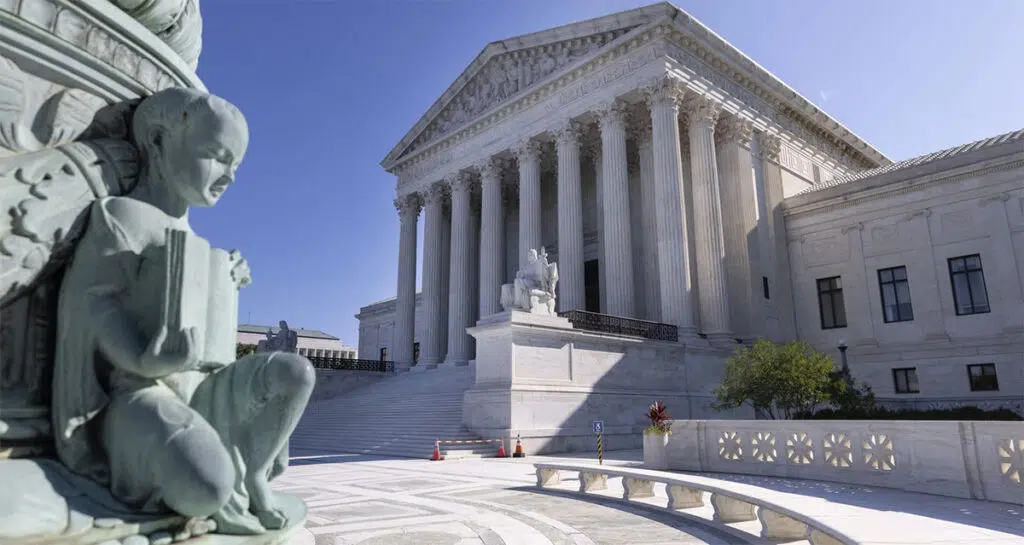
4 Takeaways From Second House Hearing on Trump Assassination Attempt
House Homeland Security Chairman Mark Green, R-N.C., expected to get answers Tuesday from top Biden administration officials about security failures before the attempted assassination of former President Donald Trump.
Those officials didn’t show up.
Secret Service Director Kimberly Cheatle resigned earlier in the day. But Homeland Security Secretary Alejandro Mayorkas and FBI Director Christopher Wray didn’t give a reason for not appearing at the House hearing. (The Secret Service is part of the Department of Homeland Security.)
“We also expect to hear answers to questions about the shooter’s motivation and what the FBI has found in its investigation, including information collected from the shooter’s various devices,” Green said. “Unfortunately and unacceptably, [Mayorkas and Wray] have refused to appear before the committee here today.”
Instead, Col. Christopher L. Paris, commissioner of the Pennsylvania State Police, answered most of the committee’s questions.
Patrick Yoes, national president of the Fraternal Order of Police, also testified before the committee.
Here are takeaways from the second congressional hearing investigating the attempted assassination of Trump, held 10 days after the July 13 shooting at a campaign rally in Butler, Pennsylvania, when the gunman’s bullets grazed Trump’s right ear, killed one attendee, and wounded two others.
1. Dismissing ‘Sloped Roof’ Excuse
Paris, head of the Pennsylvania State Police, dismissed the notion that the rooftop used by 20-year-old shooter Thomas Matthew Crooks had a dangerous slope and was too unsafe for Secret Service agents to secure.
In an interview with ABC News before her resignation, Cheatle said: “That building in particular has a sloped roof at its highest point. And so, you know, there’s a safety factor that would be considered there, that we wouldn’t want to put somebody up on a sloped roof.”
Green asked: “The slope of the roof, would that have prevented a sniper from being up there?”
Paris replied: “I don’t believe so, sir.”
Later in the hearing, Rep. Michael Guest, R-Miss., brought up the question about the roof.
“You didn’t go on the roof, but you viewed the roof. Is that correct?” Guest asked.
“Yes,” Paris replied.
“The Secret Service director prior to her resignation said she did not put anybody on the roof because it had a sloped roof that would have created a safety concern,” Guest said.
He noted that his colleague, Rep. Carlos Gimenez, R-Fla., is 70 years old and yet climbed the roof during a visit to the shooting site Monday.
“Do you agree with the assessment of the former Secret Service director that the roof was so sloped that it created safety concerns?” Guest asked.
Paris again said, “I can’t agree with that assessment, sir.”
2. Plea to ‘Reconsider’ Bill Denying Protection to Trump
Green asked the committee’s ranking member, Rep. Bennie Thompson, D-Miss., to withdraw his bill pulling Secret Service protection from Trump should the former president be sentenced to prison.
“I have to urge the ranking member to reconsider his legislation that was clearly intended to strip Secret Service protection from President Trump,” Green said during opening remarks.
“While I understand the legislation would not have applied in this instance, it was clear to everyone that it was directed toward the former president,” the committee chairman added. “We all introduce messaging bills. This one should be withdrawn.”
But later in the hearing, Thompson defended his legislation, saying that “the bill doesn’t mention former President Trump.”
In April, after Trump had been indicted in four separate criminal cases but before he was convicted of 34 felonies in the “hush money” trial in New York, Thompson introduced a bill that he called the Denying Infinite Security and Government Resources Allocated toward Convicted and Extremely Dishonorable Former Protectees Act, which the Mississippi Democrat also dubbed the DISGRACED Former Protectees Act.
If passed and designed into law by President Joe Biden, the legislation would terminate Secret Service protection for someone who has been sentenced to prison following conviction for a federal or state felony.
“You have to be a convicted felon and sentenced. At the time the bill was filed, nobody who was a protectee was a convicted felon,” Thompson said during the hearing. “Those who are lawyers here know that once you are a convicted felon and sentenced, you are remanded to the custody of that particular law enforcement agency for custody. I think it is an anomaly to say the Secret Service would have to protect a felon in jail, a convicted felon.”
That’s not the point, Green retorted, noting that financier and convicted sex offender Jeffrey Epstein died in prison.
“Prison isn’t necessarily a safer place,” Green said. “You can ask Mr. Epstein’s family about that. So, to suggest [Trump would] have the security necessary in a prison environment is not an accurate statement.”
Green added: “It’s more about what we’re doing and what we’re saying at certain times that generates the attitude in our society.”
3. ‘Met or Exceeded All of Our Expectations’
Rep. Anthony D’Espostio, R-N.Y., asked Paris to assess local law enforcement at the Trump rally July 13, as opposed to the Secret Service.
“What do you say to those that are saying local law enforcement failed to provide adequate security at this rally?” D’Espostio asked.
“It’s my belief as I sit here, based on all the information that I have, that we met or exceeded all of our expectations for that event,” Paris replied. “Am I saying the event was a success? Obviously, it was not. Our hearts go out to those affected.”
Yoes, national head of the Fraternal Order of Police, stressed the importance of local law enforcement to back up federal law enforcement.
“I would echo the fact that local law enforcement plays a huge role and must,” Yoes said. “I don’t think the federal agencies have the ability to have this event without a coordinated effort with local law enforcement.”
Earlier in the hearing, Paris explained the role of the Pennsylvania State Police the day of the assassination attempt was to “supply the Secret Service with personnel and assets that they requested.”
This involved 32 state police officers with two main responsibilities, a motorcade operation for the Secret Service’s transportation of Trump and manning and staffing security posts inside the perimeter.
“Very early after the shooting, I had a conversation with the FBI, the responsible investigating agency of the assassination of a former president under federal law,” Paris said.
He said Pennsylvania State Police are “currently conducting a criminal investigation parallel to and in concert with the FBI to identify any and all parties criminally culpable under Pennsylvania state law for the homicide and for the attempted homicides.”
4. Nagging Questions on Timeline
Later in the hearing, Gimenez asked about the timeline after law enforcement had flagged the shooter as a suspicious person on the grounds of the rally.
“From my understanding of the timeline, it’s about 20 minutes before the president came out; was that information relayed to the Secret Service?” the Florida Republican asked.
“I believe that it was,” Paris said.
“Was that relayed to the Secret Service, the team that surrounds the president himself?” Gimenez specified.
“I can’t answer that,” Paris said.
“If it wasn’t, that’s another big mess-up,” the congressman said.
Gimenez followed up by asking and answering a rhetorical question: “Who developed a plan to protect the outside of the perimeter? There’s only one agency, that’s the United States Secret Service.”



